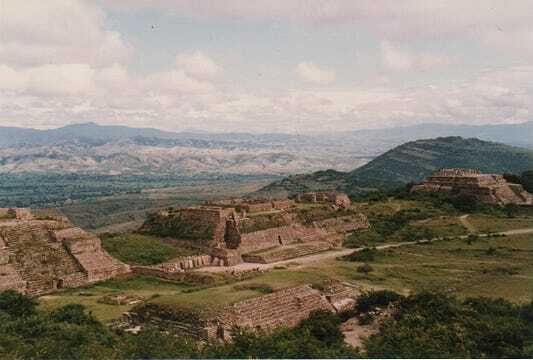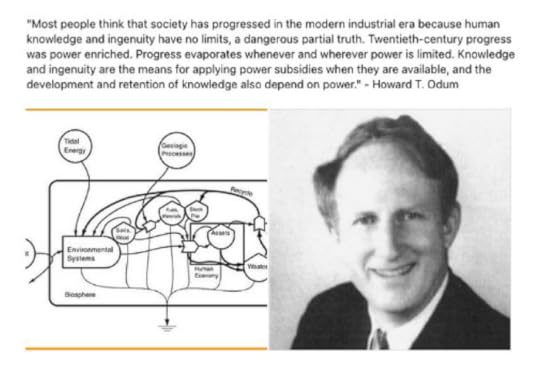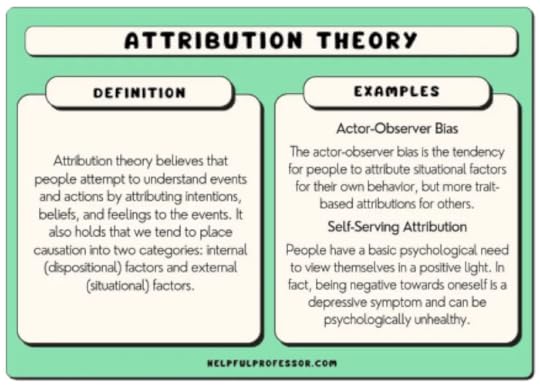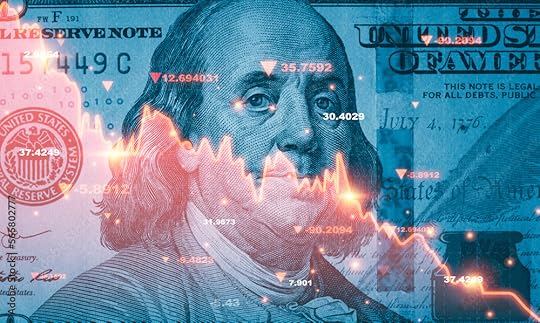Steve Bull's Blog, page 98
October 10, 2023
The New Global Oil Market Order Hangs In The Balance After Hamas Attacks Israel
In what turned out to be extraordinary timing, October 3 saw a Western coalition of France’s TotalEnergies and Italy’s Eni, plus Qatar Energy, apply for the second licensing round on oil and gas blocks 8 and 10 in Lebanese waters, while only four days later Palestinian political and military organisation Hamas launched coordinated multi-pronged attacks by land, sea, and air against Israel. Lebanon is a core member of the Iran-dominated Shia Crescent of Power, which both China and Russia have long seen as the foundation stone for their expansion of power across the Middle East as a whole, as analysed in depth in my new book on the new global oil market order. Lebanon’s political and military organisation, Hezbollah – like its Palestinian counterpart Hamas – vows Israel’s destruction and praised Hamas for its “heroic operation” against Israel on October 7. Both paramilitary groups receive multi-layered support from Iran’s financial, intelligence, and military networks and each of these support facilities are inextricably linked to China and Russia, as also fully examined in my new book. The potential for the Hamas attacks on Israel to suck in other Arab states into the conflict, and for it to then become another proxy war – to add to that still raging in Ukraine – between the U.S. and Russia (and China) appears large…
…click on the above link to read the rest…
Today’s Contemplation: Collapse Cometh XI–Fiat Currency, Infinite Growth, Finite Resources: A Recipe For Collapse
 Knossos, Crete (1993) Photo by author
Knossos, Crete (1993) Photo by authorFiat Currency, Infinite Growth, Finite Resources: A Recipe For Collapse
Yet another in an increasing collection of comments I have posted to the online media site The Tyee. This time it is a commentary on an article that reviews a book arguing in favour of the implementation of Universal Basic Income.
“No stone is left unturned in their thorough and convincing argument…”
I’m not so sure this is true. My personal focus for the past decade+ has been on the unsustainability of our complex society, particularly as it is impacted by our propensity to chase growth — especially population and economic, for these both have a significant connection to our ever-increasing drawdown of finite resources and ecological destruction of our planet. If we are not correcting this tendency to ‘grow’ in any way, shape, or form, then we are just creating more ways to kick-the-can-down-the-road of our wasteful and ruinous path; and place the significant burden of our misinformed ways on future generations.
One of the key arguments of archaeologist Joseph Tainter’s thesis regarding societal collapse as presented in his text The Collapse of Complex Societies is that a society becomes increasingly susceptible to collapse once it encounters diminishing returns on its investments in complexity. It is not a stretch at all to argue that we have been on the path of such decline for decades, particularly once we began creating a purely fiat currency that has allowed an explosion in debt/credit. If one looks at the ‘growth’ of our world since the late 1960s when central banks/governments shifted the world to a monetary system that creates money from thin air with no connection to physical commodities that could constrain our growth somewhat, it is almost all predicated on debt/credit expansion; a conundrum since debt repayment necessitates the growth imperative to continue (yes, basically a gargantuan Ponzi scheme).
Why is this connection to fiat currency important? Primarily because money is basically a claim on future resources and such resources are in terminal decline. So, the more money we ‘print’ (regardless of the reason for its printing), the more claims there are on future resources; resources that not only are disappearing quickly and getting more costly to access (because we always retrieve the easiest and cheapest to get to first), but whose retrieval results in monumental ecological destruction.
And on top of all this is the whole overshoot conundrum we have led ourselves into because of the above. Again, it is not difficult to argue that we have far surpassed the natural carrying capacity of our environment and only been able to ‘sustain’ our population by increasing our drawdown of resources through technology, energy-averaging systems (based on trade/geopolitical conquests), and this explosion of debt.
So, if we want to support our most vulnerable in society in a world that must pursue degrowth (the antithesis of our current pursuits and its expansion of debt/credit), then we need a much more complex discussion of how to do this. I see zero mentions of these complexities in the article. Just creating more money to distribute to a portion of our society is not a solution. In fact, the creation of more and more fiat is likely to have the negative consequence of our ruling class pursuing (more than they already do) increasing and significant price inflation, something that tends to hurt the majority of society more so than the elite at the top of the monetary/financial/economic system.
October 9, 2023
Today’s Contemplation: Collapse Cometh CLIV–Overreach And Diminishing Returns: Contributing To Complex Society Collapse For 10,000 Years
 Mexico (1988). Photo by author.
Mexico (1988). Photo by author.Overreach And Diminishing Returns: Contributing To Complex Society Collapse For 10,000 Years
Today’s very brief Contemplation is my comment on The Honest Sorcerer’s latest piece.
U.S. Marine Corps Major General Smedley Butler stated it so clearly in his treatise on war some 100 years ago. War is never about the narratives weaved by our ruling caste.
As he argued: “War is just a racket. A racket is best described, I believe, as something that is not what it seems to the majority of people. Only a small inside group knows what it is about. It is conducted for the benefit of the very few at the expense of the masses…
I served in all commissioned ranks from a second Lieutenant to a Major General. And during that time, I spent most of my time being a high-class muscle man for Big Business, for Wall Street, and for the bankers. In short, I was a racketeer for capitalism.”
We learn almost nothing from history; are caught up in collective narcissism and hubris; and, are led by a socio-/psycho-pathic ruling elite that are only too willing and able to sacrifice as many pawns as possible to maintain their control of the wealth-generation/-extraction systems that provide their revenue streams and thus power and prestige.
And given our species’ proclivity to defer to ‘authority’ figures and adhere to their self-serving stories (as well as their influence over the media and the political, judicial, and financial systems), the significant majority are blind to it all and cheer the insanity on — the elite leveraging our tribal sense of ‘patriotism’.
Then there’s the whole surplus energy decline predicament that has been kept almost completely behind the curtains as the snake oil salesmen weave a tale about a ‘renewable’ energy transition…is it really any wonder that the entire Middle East is a geopolitical hot spot?
As I stated on another’s Facebook Post about this entire geopolitical morass: Overreach and diminishing returns…contributing to complex society collapse for 10,000 years.
Intelligent species, just not very wise despite its self-imposed moniker.
Today’s Contemplation: Collapse Cometh X–Who Do Representative Governments Actually Represent?
April 29, 2021
 Monte Alban, Mexico (1988) Photo by author
Monte Alban, Mexico (1988) Photo by authorWho Do Representative Governments Actually Represent?
Circumstances have kept me sidetracked from writing for a few months. As life has settled a bit, although the spring weather keeps me busy working in the food garden, I felt it time to post again. Here is a comment I wrote this morning in the Tyee in response to an article on corporate bailouts and a call to give government more power.
Almost all of us live within a narrative matrix that we exist in a fair and transparent world where the ruling class exists to serve the people of a particular territory, that government and its efforts/energies are directed primarily towards benefitting the citizens it is supposed to represent, and that the resources of the nation will be distributed in a way that is equitable and just. We are taught such a world exists through our government education systems and repeatedly told this via our corporate media. If glitches in the matrix occur, it’s because of some particular individual’s defect but never a systemic problem.
A look through pre/history and a gentle scratch at the surface of this general perspective, however, will show that this view is all bullshit. The ruling class exists to benefit itself, and this is always done at the expense of its citizens. They have created an elaborate narrative to market themselves as ‘representatives’ of the people in an ongoing and expansive attempt to legitimise their rule and power. And the vast majority of people believe the stories (primarily to reduce the cognitive dissonance that is created when the notion of living within a massive, propagandised world where one has little true agency in sociopolitical and socioeconomic matters collides with the sociocultural myths of ‘representative’ government and citizen participation).
Once you realise that the world you thought exists does not, you come to view situations such as corporate bailouts as part and parcel of the ruling class taking care of itself as they always do, and not in the least surprising. We can stamp our feet and shout as much as we want but such travesties of justice and righteousness have been going on since large, complex societies came into existence and it will continue to go on as long as they exist. Periodically a sacrificial corporate lamb is paraded out to demonstrate to the public the government’s not subservient to the oligarchs/elite, but this is all just part of the theatre. Occasionally a massive revolution comes along to try and shift the balance of power back to the citizenry, but mostly this simply results in one set of sociopathic elite being replaced by another equally sociopathic group of elite.
Giving government more power and control, as this author suggests, is not a solution by any stretch of the imagination. In fact, it is probably the opposite of what we want and plays right into the hands of the ruling class (for example, the narrative that we can continue business as usual by electrifying everything and transitioning to non-fossil fuel alternative energies is mostly about shifting capital from one dead-end, unsustainable, resource-intensive, and ecologically-destructive industry to another equally dead-end, unsustainable, resource-intensive, and ecologically-destructive one so the financial/economic Ponzi we exist within can continue for a while longer and further enrich those at the top of our social power structures).
The best thing one can do is attempt to remove one’s family and local community from this delusional matrix as much as is possible. Yes, make your displeasure and contempt for the way things are known, especially at a local level, but focus on building your community’s self-sufficiency and -reliance. Reduce your consumption. Grow your own food. Re-localise as much as possible. Stop depending on both government and corporations. Stop feeding the beast for it will consume us all while selling us lies and stealing our ‘wealth’.
October 7, 2023
Today’s Contemplation: Collapse Cometh IX–Hear, Speak, See No Evil: Sociopolitical Collapse
 Chichen Itza, Mexico (1986) photo by author
Chichen Itza, Mexico (1986) photo by authorHear, Speak, See No Evil: Sociopolitical Collapse
Once more a comment posted in the Tyee in response to ongoing ‘debate’ with others in regard to the 2020 U.S. presidential election and some of the accusations of irregularities surrounding the process. While not obviously related to ‘collapse’ I will add some context to draw it into my ongoing thesis afterwards.
_____For the sake of argument, let’s say some of these [a list of supposed election irregularities] are fabricated and/or misinterpretation of events (which is what the video of the polling clerk filling out ballots is being explained away as — they were filling out ‘damaged’ ballots). That does not mean they all are and should just be summarily dismissed. They merit further scrutiny and investigation. Conspiracies (that is, an agreement to perform together an illegal, wrongful, or subversive act) are common in politics (in fact, perhaps far too common).
A few thoughts to share for those that believe otherwise.
The fact that the sources are not mainstream should not lead to their immediate dismissal as many suggest. All one has to do is look at how many mainstream sources are deliberately suppressing the whole Julian Assange debacle or the Hunter Biden laptop evidence that suggests pay-to-play shenanigans involving his father. Or Glenn Greenwald deciding to resign from the media company he founded because fellow editors refused to publish an article unless he removed all criticism of Joe Biden. These examples (and there are many, many more — a pertinent one is how many mainstream media accepted the Bush administration’s declaration that Iraq had weapons of mass destruction and then basically ran PR for the government’s invasion) should show that mainstream media is quite biased and often does not perform due diligence in its reporting, suppresses stories, or primarily runs opinion-editorials and passes them off as investigative journalism, especially if one is questioning the dominant narratives that they tend to support quite adamantly. It is often, unfortunately, only those outside of the mainstream that question the stories told by the-powers-that-be and challenge them.
And the supposed importance of elections and sanctity of voting are two of those narratives (the ones that this article goes to great lengths to further). And these are very, very important social narratives for several reasons. First, the political class overseeing society need legitimization. They need the citizens to believe with all their hearts and minds that the ruling class has a ‘right’ to be making the decisions they are making and enacting the policies they are enacting with the support and blessings of the people. Without this legitimization they would not only run into significant difficulty with social ‘order’, they would lose control of the wealth-generating systems that supply their revenue streams (their primary motivation). This right to govern supposedly derives from the choices made via the ballot box; we quite often hear leaders claim they have a mandate from the people to justify (rationalise?) their actions.
Second, people want to believe they actually have agency in the way their society is managed. Believing you have agency in your life is a fundamental need. So, people want to believe they can significantly impact the political process by voting. And we are socialised almost from birth to believe this story. Our public schools initiate us into the dominant narrative, teaching children the importance of our political system and how we need to support it. We are told it is a civic duty to vote. That if you don’t vote, you can’t complain. That major wars have been fought to protect our freedoms and the right to vote. People do not want to confront the possibility that it is all just theatre; that it is a story to keep us mollified, well behaved, and compliant; that the real power may lay well beyond their reach or influence (or as George Carlin opined: it’s a big club and you ain’t in it). The people do not want to face the idea that their leaders do not have the interests of the masses as their primary motivation; that would just create far too much cognitive dissonance.
For these two reasons alone the majority of people and certainly almost all the ruling class (and this includes academics, media, politicians, corporations) will refuse to see or acknowledge the flaws when exposed. Evidence is memory-holed. Whistleblowers are vilified (or worse). The believers and those benefiting from the dominant storyline will fight tooth and nail to defend the system. The narrative must be protected. Just read up on the various inquisitions of the Catholic Church to see how narratives that support the powerful are protected.
PS
I truly do want to thank those who challenge my thinking in a constructive manner. It forces me to rethink and reflect on my own biases and blindspots. For those who fall back on the ad hominem fallacy of attacking me or calling me names, please grow up.
One of the arguments made by Dmitry Orlov in his book The Five Stages of Collapse is that there exist a number of tipping points as it were that indicate a complex society is on the verge of collapse. He states these “Serve as mental milestones…[and each breaches] a specific level of trust or faith in the status quo. Although each stage causes physical, observable changes in the environment, these can be gradual, while the mental flip is generally quite swift.”
His five stages are:
Financial collapse where faith in risk assessment and financial guarantees is lost.Commercial collapse that witnesses a breakdown in trade and widespread shortages of necessities.Political collapse through a loss of political class relevance and legitimacy.Social collapse in which social institutions that could provide resources fail.Cultural collapse that is exhibited by the disbanding of families into individuals competing for scarce resources.As I suggest in a review and commentary on his book: “all that is needed for political collapse is for more citizens to come to the realization that the status quo is no longer working for the benefit of all but for the benefit of the elite. When the masses finally come to better understand the corruption and malfeasance that percolates throughout the political world, collapse of the political class will occur.”
This is perhaps what we are witnessing with greater frequency in the U.S. and elsewhere, suggesting sociopolitical collapse may not be too far off in the future. And with sociopolitical collapse comes some pretty serious knock-on effects that will upset the complex systems we all rely upon, especially long-distance supply chains and social ‘order’.
As I have argued in other places, when it comes to politics we seem to be chickens arguing over which fox will guard us while the henhouse is burning down in the background.
October 6, 2023
Today’s Contemplation: Collapse Cometh CLIII–Carbon Tunnel Vision and Resource/Energy & Ecological Blindness, Part 3
 Mexico (1988). Photo by author.
Mexico (1988). Photo by author.Carbon Tunnel Vision and Resource/Energy & Ecological Blindness, Part 3

As ecologist Howard T. Odum argues in the quote above, human ‘progress’ has been the result of our species’ leveraging of available ‘power’[1].
Humans are not unique in this but for a variety of evolutionary reasons, our species has taken this principle to a new (and extremely dangerous) level. In the case of our modern industrial societies and their many complexities, this power has been derived primarily from a finite cache of easily-accessible, -transportable, and -storable hydrocarbon deposits — and continues to rely significantly upon these non-renewable resources.
Rather than attribute much (most? all?) of our modern and very complex society’s ‘progress’ to the fortuitous biogeophysical circumstance of these energy deposits — particularly as it pertains to the commercial exploitation of petroleum that began in the 18th century — humans have created a mythos that it is our ingenuity and technological prowess that has led to all of the ‘advancements’ we consider as modern human progress[2].
 (https://en.wikipedia.org/wiki/Progress)
(https://en.wikipedia.org/wiki/Progress)And while there is a partial truth to this belief (as Odum points out, since we had to develop/innovate means of extracting and refining these deposits to ‘power’ our industries and various technologies) it is not the entire truth since we have come to discount/deny the importance of these hydrocarbon deposits to our ‘progress’ and the fortuitous biogeophysical circumstances that were required to create them — to say little about the importance of the planet’s ecological systems to all of this as well.
We have, instead, looked in the mirror and declared what a remarkably wise and intelligent ape we are; in fact, truth be told, we’re meant to rule and lord over the entire planet — including the lesser of our own species. A result of collective narcissism? It would seem partially so.
As I stated at the close of Part 2 of this multi-part contemplation (Part 1):
“Blindness to the importance of hydrocarbon energy to almost all of our complex systems is leading us to offer narratives that most assuredly are making our predicament of ecological overshoot worse. They mostly depend upon tales that highlight human ingenuity, especially with respect to technology, and offer ‘solutions’ to maintain for the most part our status quo systems and complexities…
Why do we do this? Why do we construct stories that, depending upon one’s perspective, could be considered suicidal in nature?”
Let’s now unpack some of the psychology behind this phenomenon.
Story-Telling Apes
Narrative psychology is that branch of psychology that focuses upon the story-telling aspect of our species. It operates “…under the assumption that human activity and experience are filled with ‘meaning’ and stories, rather than lawful formulations…[studying] how human beings construct stories to deal with experiences.”[3]
Basically, in our attempts to make sense of our exceedingly complex world and then give it meaning, humans develop stories that they then share with others[4]. Needless to say, our sensemaking via shared stories is a uniquely human behavioural attribute that is due to our communication abilities and exceedingly complex cognitions.
 (https://www.yesmagazine.org/social-justice/2018/10/17/the-power-of-sharing-stories)
(https://www.yesmagazine.org/social-justice/2018/10/17/the-power-of-sharing-stories)This storytelling to help us understand and make sense of our experiences is influenced by self-identity, retrospection, sharing, social milieu/audience, feedback (both internal and external), referential cues, and plausibility.[5]
And what is interesting about the final influence here, plausibility, is that this tends to be favoured over accuracy — what is ‘plausible’ becomes far more important than what is ‘accurate’. In other words, story-tellers tend to be more concerned with the ‘acceptability’ of their story, especially to the audience they are sharing it with, rather than with whether or not it reflects ‘reality’. Basically, we tend to be far more interested in whether the story we are telling resonates with the audience to whom we are sharing our story with than whether the story is accurate or not. Reality takes a back seat to getting our audience to accept, believe in, and react positively to our story.
The audience of a shared story also tends to put the plausibility of the narrative ahead of any evidentiary aspects. When exposed to the story from another person, we look for fit with our personal beliefs and biases. If what is being shared aligns with our preconceived expectations, we tend to believe it since we also tend to seek confirmation of our beliefs[6]. We absorb that which aligns with our preconceived view of things, reinforcing our beliefs. However, if the narrative does not corroborate our view of things, we tend to ignore/rationalise away it and its evidence.
 (https://www.dreamstime.com/photos-images/reject.html)
(https://www.dreamstime.com/photos-images/reject.html)This confirmation bias has a powerful impact upon our beliefs and our acceptance of another’s story, particularly its ‘plausibility’ and whether it is considered as reflective of ‘reality’.
Imagine, for a moment, an audience made up of financiers/economists verses one made up of ecologists/environmentalists, or of physicists. The validity or persuasiveness of a story depends greatly on the message being shared and how well it confirms or challenges beliefs.
For example, if one were discussing the finiteness of a resource to these different groups and arguing that the possibility of infinite substitutability (a mainstay of many economic viewpoints) is impossible due to certain biogeophysical constraints, the plausibility of this view would be either accepted or rejected depending upon which audience such an argument is being presented to.
Within the context of plausibility lie a number of factors that impact an audience’s acceptance of a story, confirmation bias being but one. Does the tale align with our experiences? Does it follow a stereotypical sequence of events or make use of ‘anchors’ that trigger one’s worldview? Does it use examples/precedents that appeal to the listener?
What is also important to our understanding of our story-telling nature and a significant contributing factor to our blindness to particular aspects of reality is attribution theory[7]. This theory focuses more intently upon the processes involved and suggests that humans infer causes and motivations that may or may not accurately reflect reality because of a rather large number of assumptions, heuristics, and cognitive biases that influence our interpretations.
Our tendencies are to attribute behaviours, motivations, and causes in certain ways; not always, but most of the time. And this tendency seems to play a very significant role in our blindness to the importance of energy to our sense of progress.
 (https://helpfulprofessor.com/attribution-theory-examples/)
(https://helpfulprofessor.com/attribution-theory-examples/)According to attribution theory some of the ways we tend to think about behaviours, because of cognitive biases, include:
1) Assigning the behaviour of others to internal causal factors such as personality, motive, and beliefs (i.e., fundamental attribution error, which is more common in ‘individualistic’ cultures);
2) Assigning the behaviour of ourselves to external factors such as the situation or environment (i.e., self-serving bias, which serves to protect one’s self-esteem);
3) Putting ourselves in the best possible light when telling a story to acquaintances/friends (i.e., interpersonal attribution).
Of particular importance to our stories around energy, resources, human ingenuity, and technology is the self-serving bias. This bias involves taking personal credit for successes (and blaming others when experiencing negative outcomes) and can be influenced by one’s age, motivation, culture, and locus of control.
Perhaps the most influential aspect of this bias with respect to our blindspots about energy and our ecological systems importance is the last one mentioned above: locus of control.
This aspect of our psyche or self-image deals with our beliefs about our ability to control events impacting our life. Do we believe our actions influence our experiences? Or are these events and their outcomes outside of our control?
Such beliefs exist within a continuum from no control to complete control, with people tending towards one end of the scale or the other but also shifting their beliefs based upon the context/circumstances. Add this to the tendency to want to put oneself in the best possible light, and we can begin to see why humans orient towards stories that elevate the importance of our ingenuity and technological prowess when viewing the world in terms of ‘progress’.
We not only want to take credit for perceived ‘advances’ as it builds our self-esteem, but we want to believe we have such control and influence upon the sociocultural ‘evolution’ of our species.
My next post will continue to look at some additional psychological mechanisms as well as belief system development and the role of marketing propaganda to influence our beliefs about energy and what is or is not possible for a species bumping up against (or, should I say, having surpassed) biogeophysical limits on a finite planet.
_____NOTE: Beginning to post these thoughts of mine also on my website . I began a couple of years ago posting them on Medium exclusively but have found that their subscription practices are somewhat restrictive. I will attempt to post one of my previous Contemplations per day on my website until I am caught up…in the meantime, I will be posting all new Contemplations in both locations.
_____Recently released:
It Bears Repeating: Best Of…Volume 1
A compilation of writers focused on the nexus of limits to growth, energy, and ecological overshoot.
With a Foreword and Afterword by Michael Dowd, authors include: Max Wilbert; Tim Watkins; Mike Stasse; Dr. Bill Rees; Dr. Tim Morgan; Rob Mielcarski; Dr. Simon Michaux; Erik Michaels; Just Collapse’s Tristan Sykes & Dr. Kate Booth; Kevin Hester; Alice Friedemann; David Casey; and, Steve Bull.
The document is not a guided narrative towards a singular or overarching message; except, perhaps, that we are in a predicament of our own making with a far more chaotic future ahead of us than most imagine–and most certainly than what mainstream media/politics would have us believe.
Click here to access the document as a PDF file, free to download.
_____If you’ve made it to the end of this contemplation and have got something out of my writing, please consider ordering the trilogy of my ‘fictional’ novel series, Olduvai (PDF files; only $9.99 Canadian), via my website — the ‘profits’ of which help me to keep my internet presence alive and first book available in print (and is available via various online retailers).
You can also find a variety of resources, particularly my summary notes for a handful of texts, especially Catton’s Overshoot and Tainter’s Collapse: see here.
_____
[1] See this recent article for a summary of the Maximum Power Principle that is behind this assertion. Also see this one by Erik Michaels.
[2] Let’s keep in mind that the word ‘progress’ is extremely loaded in its meaning. Depending upon one’s perspective and/or focus, what might be considered ‘progress’ to one person may be quite different to another — for example, an economist’s interpretation verses an ecologist’s.
[4] See this, this, this, this, and/or this.
The Costs and Casualties of Government’s Information Total War
 The Costs and Casualties of Government’s Information Total War
The Costs and Casualties of Government’s Information Total War“I disapprove of what you say, but I will defend to the death your right to say it,”
This phrase, misattributed to Voltaire, has largely come to dominate—and confuse—our understanding of the importance of free speech in a free society. That misunderstanding seems to be at the heart of the very lukewarm response elicited by the exposure of “the most massive attack against free speech in United States’ history” unearthed through discovery in Missouri v. Biden now before the Supreme Court.
The trouble with this framing of free speech is that it focuses on hateful speech, framing the imperative to defend the utterance of hateful speech as a form of polite, reciprocal tolerance, necessary for the smooth functioning of a liberal society. If ever there were a framing that caused one to miss the forest for the trees, this is it.
The primacy free speech enjoys here in the US has nothing whatever to do with some dewy-eyed ideal of tolerance. Rather, it owes its primacy to pragmatism. Freedom of speech is the best tool we have to ascertain the truth of any given matter. Like a sculptor transforming a shapeless piece of marble into a work of art, free and open debate chisels away at the falsehoods and misapprehensions in which the truth lays embedded. Restrict debate, and the gradual emergence of that truth will be delayed or deformed, with the result imperfect at times to the point of monstrosity.
The reason we must “defend to the death” the right to utter “intolerable speech,” is that failure to do so results in the swift and certain condemnation as “intolerable” all speech that diminishes the power or legitimacy of those in power…
…click on the above link to read the rest…
Today’s Contemplation: Collapse Cometh VIII–Peak Oil and Sociopolitics
 Chitchen Itza, Mexico (1986) Photo by author
Chitchen Itza, Mexico (1986) Photo by authorPeak Oil and Sociopolitics
Once again, a comment I posted in response to an article on The Tyee.
Where to begin? I realise this article is primarily about a federal political party and its future but there are two underlying issues that are discussed that need far more exploration and understanding if we are going to be projecting where a particular party or even government will be down the road (let alone the entire world).
If we are going to be discussing energy and Peak Oil then there is SO much more to bring into the conversation. Yes, politics plays a role (as it always does) but the topic is vastly wider than sociopolitics. It encompasses virtually everything in our complex, globalised industrial world. Everything. From the way we create potable water, to how we feed ourselves, to how we build and heat our homes (I’ve purposely focused on the three items we NEED to live…everything else is icing but just as dependent on energy, especially fossil fuels).
First things first. There is NO substitute for fossil fuels. At least not one that can sustain our current world the way it is configured. No, alternatives to fossil fuels cannot do it. They are not ‘clean’ as the mining, refinement, and manufacturing processes for them are environmentally damaging. They have a low energy-return-on-energy-invested (EROEI) and provide little ‘bang for the buck’. They cannot fuel many important industrial processes such as steel and concrete production. They depend very much on continued exploitation of fossil fuel, both upstream and downstream. They are NOT a panacea.
We are stuck with fossil fuels, until and unless we are ready and willing to give up probably 90% or more of what we consider ‘modernity’.
Then there’s the fiscal aspect discussed here. While it may be ‘progressive’ to be discussing and believing that money grows on trees (or at least within the 1 and 0s of computers), this infinite money growth that is being bandied about as another wonderful panacea for our world that’s gone sideways carries with it enormous consequences.
Let’s agree for the sake of argument that we can indeed just print as much money as we want to ‘pay’ for all that we want and desire — and we can, we just create it from thin air. Presto. More money.
I think most would see that if everyone was suddenly in receipt of, say a million dollars, there would be knock-on effects in the price inflation we would experience; after all, more money chasing the same amount of goods and services would, as most economists would agree and experience has shown, result in higher prices experienced by the population (unless of course it just gets left in the computer data banks and accumulates interest; oh wait, interest rates are zero or lower).
Okay, so let’s say price inflation hits. Solution: we deposit another million, or maybe two million in everyone’s new digital bank account…same problem.
In fact, we’re probably beginning to experience hyperinflation; and experiments in this realm have never ended well. The surest way to bring about a loss of faith in fiat currency and eventual economic collapse is through currency debasement, which is exactly what endless money printing does. But, again, for the sake of argument, let’s say that doesn’t happen (miracles do sometimes occur; although I’m not sure the Leafs winning the Stanley Cup is one of them).
So are the creation of goods and services ramped up to meet demand since everyone has money to buy things? Likely. Here is where we get back to the first issue.
Every dollar spent requires energy to produce the goods or services provided. Think this doesn’t happen? Take a look at GDP and energy use. They are correlated almost perfectly. They increase together. Think alternative energy will meet this demand? Hardly. Increased alternative energy production has not even been able to keep up with increasing demand. The world has had to continue to ramp up fossil fuel use to meet demands. The more money that is created and spent, the more demand there is for energy and resources.
But we have a slight problem. We live on a finite world with finite resources but especially fossil fuels which underpin our current world and all of its interconnected complexities. Our world as designed and functioning currently is fubar without fossil fuels.
It doesn’t matter what party is in charge of things. It never has. The Liberals, NDP, or Greens for that matter can wrap themselves in cloaks of green (to give the illusion of being environmentally friendly; or, of having lots of money; or, both perhaps) and promise a green/clean economy where everyone has everything they want and need, and it won’t mean a damn thing in the end. We could all sit around the campfire holding hands and singing kumbayah but that won’t keep the impending cliff at bay.
These inconvenient truths, as it were, are already biting us and we can only ‘paper’ over them for so long. At some point we have to realise that like Wile E. Coyote we left solid ground some time ago and have been running on air with nothing holding us up. Until a tipping point of people come to this realisation it will be business as usual and the telling of comforting narratives to reduce our mass cognitive dissonance and avoid the pain of reality.
Rant concluded.
The clean energy economy turns out to be the metals energy economy
A very observant longtime friend of mine opined recently that the clean energy economy is really just a metals energy economy where metals provide the basis for energy production and transmission. The idea that this emerging economy is going to be light on resources compared to our current fossil-fuel based economy is a fantasy.
And you don’t have to take his word for it. The International Energy Agency (IEA) has attempted to project the needs of this new economy. The IEA’s report entitled “The Role of Critical Minerals in Clean Energy Transitions” contains some eye-popping statistics that drive home just how much in the way of metals might be needed in order to supply the builders of this clean energy infrastructure.
Using two scenarios the IEA estimated that growth in demand coming from clean energy industries just for battery-related minerals will explode by 2040 relative to 2020:
1. Lithium: Between 13 to 42 times.
2. Graphite: Between 8 and 25 times.
3. Cobalt: Between 6 to 21 times.
4. Nickel: Between 6 to 19 times.
5. Manganese: Between 3 to 8 times.
Demand related specifically to renewable energy and its infrastructure is projected to increase for the following minerals under two scenarios:
1. Rare earth elements (REEs): Between 3.4 and 7.3 times more. REEs are important for electric motors and generators.
2. Molybdenum: Between 2.2 to 2.9 times more. Molybdenum is used in solar and wind power because of its ability to transmit electricity well.
3. Copper – Between 1.7 to 2.7 times more. Copper, of course, has long been used in electrical motors and wires.
4. Silicon – Between 1.8 to 2.3. Silicon, of course, is a semiconductor widely used in solar panels. Silicon is the second most abundant element in the earth’s crust after oxygen, so it is widely available. However, it takes considerable energy and a multi-step process to produce silicon of sufficient purity for semiconductor and other applications.
…click on the above link to read the rest…
Unwinding the Financial System

This article looks at the collateral side of financial transactions and some significant problems that are already emerging.
At a time when there is a veritable tsunami of dollar credit in foreign hands overhanging markets, it is obvious that continually falling bond prices will ensure bear markets in all financial asset values leading to dollar liquidation. This unwinding corrects an accumulation of foreign-owned dollars and dollar-denominated assets since the Second World War both in and outside the US financial system.
Furthermore, collapsing collateral values, which are increasingly required backing for changing values in over $400 trillion nominal in interest rate swaps are a new driver for the crisis, forcing bond liquidation, driving prices down and yields higher: we are in a doom-loop.
What action can the authorities take to ensure that counterparty risk from widespread failures won’t take out inadequately capitalised regulated exchanges?
It seems that they acted some time ago by giving central security depositories (The Depository Trust and Clearing Corporation, Euroclear, and Clearstream) the right to pool securities on their registers and lend them out as collateral. Your investments, which you think you may own can be absorbed into the failing financial system without your knowledge.
This seems particularly relevant, given the appointment of JPMorgan Chase as custodian of the large gold ETF, SPDR Trust (ticker GLD). In a test case in the New York courts concerning Lehman’s failure, JPMC was given legal protection should it seize its customer’s assets.
This important erosion of property rights is poorly understood. But as the financial distortions are unwound, leading to unintended consequences such as bank failures and ultimately the collapse of the dollar-based fiat currency regime, the implication is that holders of physical gold ETFs will be left owning an empty shell at a time when they might have expected some protection from the collapse of the value of credit.
…click on the above link to read the rest…



